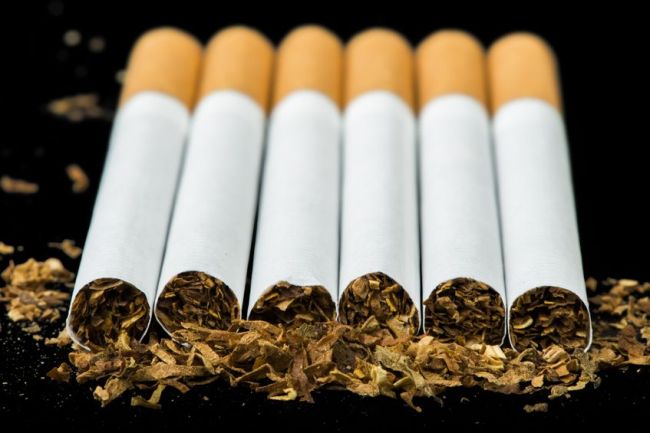Korea's cigarette imports surged in 2015 after contracting for four straight years despite government efforts to discourage smoking by sharply raising prices, official data showed Thursday.
Imports of cigarettes spiked 117.3 percent on-year to over US$34.56 million in 2015, with the volume also increasing 128.1 percent to 1,877 tons, the Korea Customs Service (KCS) said.

In 2014, the value of tobacco imports sank 14.4 percent from the previous year to $15.9 million and the volume plunged 15.4 percent to 823 tons.
Imports peaked in 2011 when the country purchased $38.7 million worth of cigarettes from abroad totaling 1,945 tons.
"The social trend by people to quit smoking that had been gaining momentum over the years seems to have backtracked in 2015," the KCS said. "There was a slight drop in the second half of 2014 when the government announced it would raise prices, but this contraction was short-lived, with demand rising in 2015."
The launch of so-called pocket packs by tobacco companies that contain just 14 cigarettes instead of the normal 20 also contributed to the spike in sales, it said.
These smaller packs cost 2,500-2,700 won (US$2.06-2.23), which is the same price as a regular pack of cigarettes before the government raised prices by 2,000 won starting last year.
The customs service also said 22.7 percent of all imports were from Germany, followed by 15.1 percent for Poland and 14.8 percent for Lithuania.
The latest data showed that imports of e-cigarettes grew at a much slower pace of 33.3 percent on-year worth $13.52 million, with 196 tons being imported.
Last year's numbers represent a 13-fold increase in three years, although the pace of growth dropped from the 342 percent on-year growth in value reached in 2014.
Of all e-cigarettes imported, 95.4 percent were from China.
Imports of liquid solutions used to simulate smoking rose 21.2 percent vis-a-vis the year before to $5.37 million with 86 tons being imported overall last year. Roughly half of the solutions came from China, the KCS said. (Yonhap)
Imports peaked in 2011 when the country purchased $38.7 million worth of cigarettes from abroad totaling 1,945 tons.
"The social trend by people to quit smoking that had been gaining momentum over the years seems to have backtracked in 2015," the KCS said. "There was a slight drop in the second half of 2014 when the government announced it would raise prices, but this contraction was short-lived, with demand rising in 2015."
The launch of so-called pocket packs by tobacco companies that contain just 14 cigarettes instead of the normal 20 also contributed to the spike in sales, it said.
These smaller packs cost 2,500-2,700 won (US$2.06-2.23), which is the same price as a regular pack of cigarettes before the government raised prices by 2,000 won starting last year.
The customs service also said 22.7 percent of all imports were from Germany, followed by 15.1 percent for Poland and 14.8 percent for Lithuania.
The latest data showed that imports of e-cigarettes grew at a much slower pace of 33.3 percent on-year worth $13.52 million, with 196 tons being imported.
Last year's numbers represent a 13-fold increase in three years, although the pace of growth dropped from the 342 percent on-year growth in value reached in 2014.
Of all e-cigarettes imported, 95.4 percent were from China.
Imports of liquid solutions used to simulate smoking rose 21.2 percent vis-a-vis the year before to $5.37 million with 86 tons being imported overall last year. Roughly half of the solutions came from China, the KCS said. (Yonhap)










![[Hello India] Hyundai Motor vows to boost 'clean mobility' in India](http://res.heraldm.com/phpwas/restmb_idxmake.php?idx=644&simg=/content/image/2024/04/25/20240425050672_0.jpg&u=)








